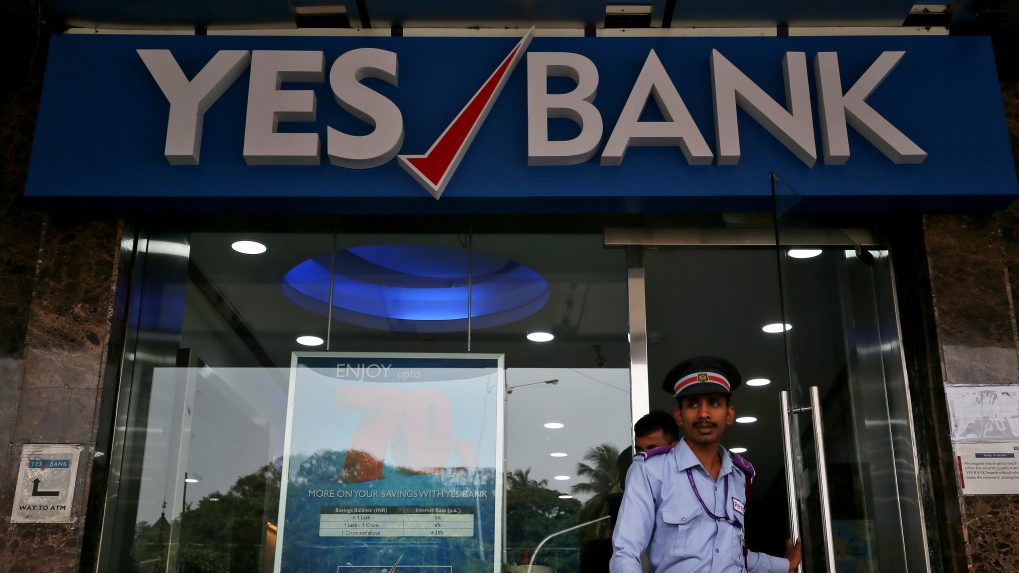Yes Bank has sunk but the script is the same. The Bank co-founder Rana Kapoor and his family, it is now revealed, had set up over 20 shell companies to receive ‘kickbacks’ from businessmen who took huge loans from the bank and then defaulted on payments. The Kapoor family invested such money in properties both in India and abroad. Clearly, the game was on for a long time, and the government or the RBI intervened in the matter a bit too late. In other words, as had happened in the case of other banking sector frauds, the government machinery, including RBI, looked the other way when a major financial crime was unfolding through months and years. All this happened while the clamour has been getting louder for privatizing as many government services as possible. For example, the din about making Life Insurance Corporation of India (LIC) go private is also a point to ponder. The old argument of private individuals handling large public institutions in India versus the unimaginative and self seeking bureaucrat given charge of large public enterprises seeks a true answer now. It must be admitted that in the Indian social and economic backdrop, a clear response that will hold valid for all situations is impossible to produce.
RBI’s action a week ago to supersede Yes Bank’s board, announce a moratorium on the bank, freeze its accounts, disallow withdrawals beyond Rs 50,000 in emergency situations, and saying the restrictions will continue for a month until new regulations are in place, smacked of an urgency for fire-fighting. Finance Minister Nirmala Sitharaman promising depositors that their funds are safe is hard to believe. Hard-earned money is likely lost for investors or depositors as the bank showed all signs of crumbling. In Orissa, the case of the huge deposits of Lord Jagannath temple trust, also smacks of ill intentioned acts.
What has happened to Yes Bank has happened in a different yet similar manner with some other banks in the recent past, one of them being the Punjab and Maharashtra Cooperative Bank. Irregularities of huge proportions over a period relating to lending had been found, leaving depositors in deep misery. There too, when the bank was at its collapse state, depositors were put through restrictions on withdrawals by RBI as a first step to face the crisis, while the PMC was looted clean by sharks who ran Housing Development and Infrastructure Ltd (HDIL) and others. RBI’s excuse before the public was that it was ‘cheated’.
While the PMC’s profit scenario was projected as rosy till a year ago, it hid HDIL’s huge loan liabilities in its audit report. The claim of cheating cannot be an excuse for the central bank; it was duty-bound to set up a system to check such practices in banks. In the case of Yes Bank too, huge advances were made to Dewan Housing, as also to others including a Dawood Ibrahim aide. Companies that were not getting loans from anywhere due to their doubtful credentials were advanced loans by Yes Bank. All the questioning by Enforcement Directorate of the Kapoors are fine, but nothing goes to show this will give any sense of comfort to the depositors who have virtually lost their money. PNC depositors too are largely out in the woods as far as getting back their money is concerned.
While several banks in the country are faced with serious issues of bad debt, much of the misdeeds in the banking sector have also to do with connivance of government functionaries, RBI, loan defaulters and those managing the respective banks. Whether it’s a Chanda Kochhar of ICICI or Kapoor of Yes, the stock seems to be extremely similar. With all these, the crisis of confidence in India’s banking sector is progressively growing, and this is bound to cast an evil spell on the national economy, both for short and long term. The government, always clamoring for moving the country into Digital economy, is pushing the nation into the laps of people like Kochhars and Kapoors. While the government is itself found wanting in handling the situation as also in strengthening the regulatory bodies, it is unwilling to accept its own faults. Without any economic thought processes that are visible to the citizens, today’s political leadership claims to know-it-all. A drama or two with ED and CBI officials scurrying around will by itself mean very little in real terms. The nation’s economy is already battered. Yes, when such banks start to fall by the road side, indications point to a further worsening of the situation.
